A federal judge June 12 granted preliminary approval of a $12 million settlement in a wage and
hour class action alleging drivers of SuperShuttle airport vans in California were misclassified as
independent contractors or franchisees ( Kairy v. SuperShuttle Int’l, Inc. order granting preliminary
approval of settlement ).
The plaintiffs alleged that SuperShuttle and its city licensees exerted pervasive control over the
drivers, made wrongful deductions from their wages, coerced the drivers to purchase necessary
services and items, failed to allow them meal breaks and failed to pay them minimum and
overtime pay.
The plaintiffs’ motion for settlement agreement would provide a net payment to drivers, after
payment of class counsel fees and expenses, Private Attorney General Act penalties and named
plaintiffs’ service awards, of about $7,592,500 to be distributed to 3,230 class members based
upon the weeks worked during the class period. The eight named plaintiffs will share a $100,000
incentive award.
Fees, Payout.
Class co-counsel Aaron Kaufmann of Leonard Carder LLP in Oakland, Calif., in a declaration said
the average payout will be $2,350.
Judge Jeffery White of the U.S. District Court for the Northern District of California scheduled an
Oct. 31 fairness hearing and ordered class counsel to file a motion seeking attorneys’ fees and
costs by July 7. The settlement provides for attorneys’ fees up to 33.3 percent, or $4 million, plus
costs of up to $300,000.
Plaintiffs’ co-counsel David Pogrel, with Leonard Carder, declined comment June 18 citing the
settlement agreement’s confidentiality provision. Counsel for Phoenix-based SuperShuttle could
not be reached for comment. Misclassification Alleged.
SuperShuttle International Inc. is a wholly owned subsidiary of Veolia Transportation Inc.
SuperShuttle-branded vans provide door-to-door service to and from all major California airports,
operating in each market through wholly owned companies referred to as “City Licensees,”
according to the complaint.
Around 2001, SuperShuttle began moving from an employee model to an independent contractor
franchise system under which all drivers had to enter a franchise agreement or serve as a subdriver
for a franchisee. The franchises cost $21,000-$50,000, which most drivers financed through
SuperShuttle. Franchise drivers are financially responsible for all van-related expenses, and pay
SuperShuttle license fees amounting to 25 percent of the fares collected for their vans, system
fees charged to access SuperShuttle’s dispatch system that cost $250-$325 per week and other
fees.
Hundreds Employed.
The lawsuit claims violations of the Fair Labor Standard Act (29 U.S.C. §§ 206, 207216(B) and
255(A)), the California Labor Code’s minimum wage and overtime provisions (Cal. Lab. Code §§
1194, 1194.2 and 1197), California reimbursement of business expenses (Cal. Lab. Code § 2802),
California unfair competition law (Cal. Bus. & Prof. Code § 17200), and California Private
Attorneys General Act (Cal. Lab. Code § 2698).
Hundreds of workers are employed including in San Francisco, Los Angeles, Orange County,
Sacramento and San Diego, transporting passengers to airports at times and from locations
determined by SuperShuttle, according to the complaint.
The lawsuit originally was filed in California Superior Court, Alameda County, and removed to
federal court under the Class Action Fairness Act.
Ninth Circuit Approved Action.
The U.S. Court of Appeals for the Ninth Circuit in 2011 ruled a court may determine whether
“franchisee” drivers for an airport shuttle company are employees or independent contractors
under California wage and hour law (Kairy v. SuperShuttle Int’l, (9th Cir. 2011)). The National Labor Relations Board Region 31 in May 2013 concluded that the franchisees are
independent contractors “because they have significant entrepreneurial opportunity, the company
does not meaningfully control the manner and means of the franchisees’ work, and the parties
clearly intended to create an independent contractor relationship.” (SuperShuttle Los Angeles,
Inc., NLRB, No. 31-CA-092489 (2013)).
Class Terms.
Defendants have agreed to operational/programmatic changes to the SuperShuttle franchise
program that improve the financial terms for current SuperShuttle van operators and afford them
enhanced entrepreneurial opportunities, the motion for preliminary approval said.
The primary operators sub-class includes all individuals who have had a franchise or owneroperator
agreement with Cloud 9 Shuttle Inc., SuperShuttle of San Francisco Inc., Mini-Bus
Systems Inc., SuperShuttle Los Angeles Inc. or Sacramento Transportation Services Inc. A
secondary operators sub-class includes all individuals who have operated a SuperShuttle-branded
van under arrangements made with one or more primary operators during the same period,
between May 8, 2004, and June 13, 2014.
Each week worked by a secondary operator will be valued at 65 percent of the value of each week
worked by a primary operator in recognition of the greater expenses and risk incurred by primary
operators, the settlement said.
The settlement was reached after five days of mediation and negotiated over the course of six
months, with the involvement of the mediator, all of which followed two appeals and extensive
discovery.
Plaintiffs are represented by Philip Monrad, Aaron Kaufmann and David Pogrel of Leonard Carder
LLP in Oakland, Calif.; Daniel Feinberg and Kirsten Scott of Lewis, Feinberg, Lee, Renaker &
Jackson PC in Oakland; Peter Rukin and Rosha Jones of Rukin Hyland Doria & Tindall LLP in San
Francisco; and Bryan Schwartz and Rachel Terp of Bryan Schwartz Law in Oakland.
Defendants are represented by Paul Joseph Marron, Steven Craig Rice and Victoria L Wood of
Marron Lawyers in Long Beach, Calif., and Rebecca Eisen and Robert Job Hendricks of Morgan,
Lewis & Bockius LLP in San Francisco.
Reproduced with permission. Published 6/18/14. Copyright 2020 by The Bureau of National Affairs, Inc. (800-372-1033) <http://www.bloombergindustry.com>
